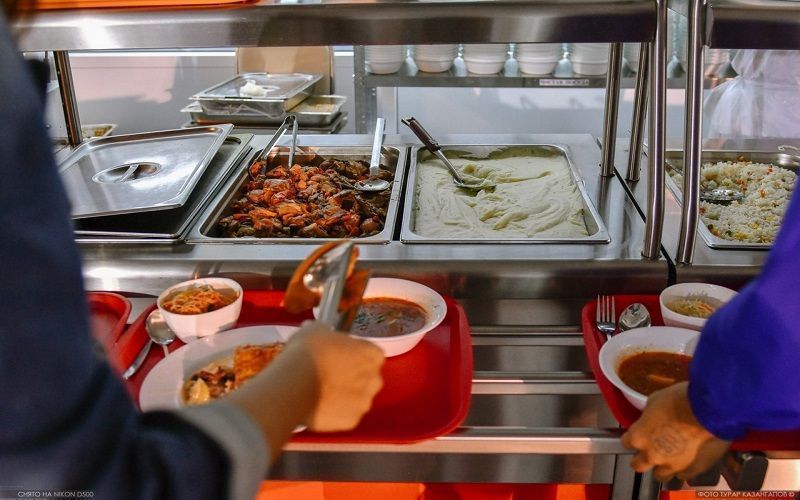Turkish Hotels May Abandon Buffet Due to Food Waste Issue
Turkish authorities are considering abandoning the buffet system in hotels to reduce food waste. According to the Turkish Waste Prevention Foundation, approximately 23 million tons of food are discarded annually in the country, with a significant portion wasted before reaching the table. Each resident accounts for 102 kg of disposed food.

This issue not only leads to the inefficient use of resources but also contributes to rising food prices. The Agricultural and Food Policy Council under the administration of Turkish President Recep Tayyip Erdogan is preparing a report with proposals to address this issue, which will be presented to parliament. It is expected that appropriate measures will be developed within two months.
Experts note that in recent years, Turkey has seen a trend of serving excessive amounts of dishes, especially at breakfasts. Often, portions intended for two people are excessive for fewer guests, resulting in a significant amount of food being left untouched and then discarded. Council member Ramazan Bingel criticized this practice, calling it a waste of millions.
As a solution to the problem, a transition fr om the "all-inclusive" system to the "a la carte" system, wh ere guests order dishes from a menu, is proposed. According to experts, this system will allow for more rational use of food. Additionally, there are plans to prohibit establishments from limiting the number of people who can order a communal breakfast.
There is also consideration of banning the disposal of excess food on the streets, which can contribute to pollution and the spread of bacteria. Instead, unnecessary food is proposed to be sent to animal shelters.
Special attention is given to the issue of bread disposal. Approximately 12 million flatbreads are discarded daily in Turkey, amounting to 4.38 billion annually. In the context of agricultural challenges and the threat of global hunger, this fact raises particular concern. It is proposed to set limits on bread serving in restaurants.
The Vice President of the Russian Union of Travel Industry, Dmitry Gorin, noted that while the "all-inclusive" system is beneficial for tourists, a shift to "a la carte" may encourage a more rational approach to food.
Experts note that in recent years, Turkey has seen a trend of serving excessive amounts of dishes, especially at breakfasts. Often, portions intended for two people are excessive for fewer guests, resulting in a significant amount of food being left untouched and then discarded. Council member Ramazan Bingel criticized this practice, calling it a waste of millions.
As a solution to the problem, a transition fr om the "all-inclusive" system to the "a la carte" system, wh ere guests order dishes from a menu, is proposed. According to experts, this system will allow for more rational use of food. Additionally, there are plans to prohibit establishments from limiting the number of people who can order a communal breakfast.
There is also consideration of banning the disposal of excess food on the streets, which can contribute to pollution and the spread of bacteria. Instead, unnecessary food is proposed to be sent to animal shelters.
Special attention is given to the issue of bread disposal. Approximately 12 million flatbreads are discarded daily in Turkey, amounting to 4.38 billion annually. In the context of agricultural challenges and the threat of global hunger, this fact raises particular concern. It is proposed to set limits on bread serving in restaurants.
The Vice President of the Russian Union of Travel Industry, Dmitry Gorin, noted that while the "all-inclusive" system is beneficial for tourists, a shift to "a la carte" may encourage a more rational approach to food.











